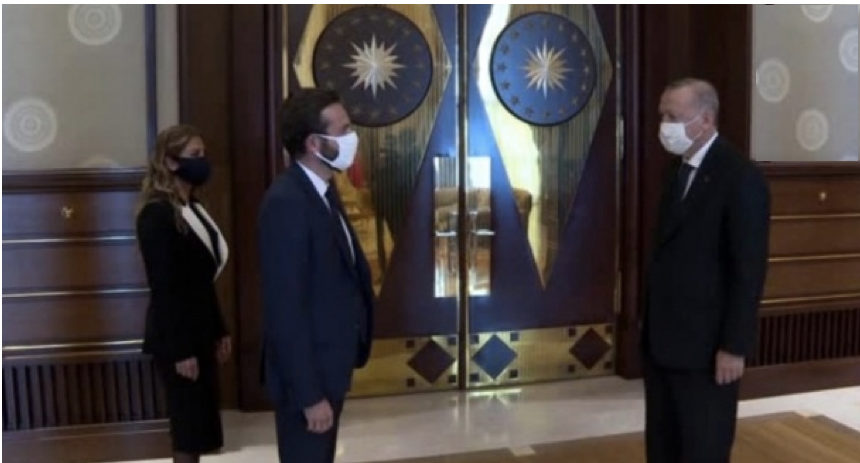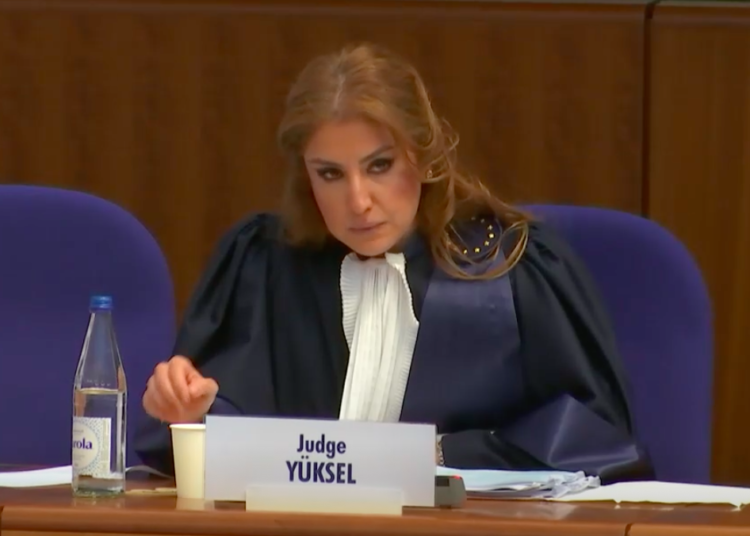Levent Kenez/Stockholm
The European Court of Human Rights (ECtHR) introduced revisions to its Rules of Court, with a particular focus on Rule 28 regarding the recusal of judges. The anticipated beneficiaries of these changes are expected to be applicants complaining about judges appointed by their authoritative governments including the regimes in Turkey and Eastern Europe. Human rights advocates have long accused the Turkish judge at the ECtHR of serving as a representative of the ruling party and the Turkish government within the court.
Adopted by the Plenary Court on December 15, 2023 and effective from January 22, 2024, the changes signify a crucial step in the ongoing procedural reforms deliberated throughout 2023.
According to the announcement on the ECtHR’s website, Rule 28 is pivotal in upholding the principle of impartiality, a cornerstone for the rule of law and the protection of human rights. The updated rule not only reaffirms the grounds for a judge’s disqualification but also strengthens the procedural framework by expressly codifying the practice that allows parties to request a judge’s recusal.
In tandem with the revised rule, the court’s president has issued a practice direction on judge recusal. This direction aims to provide clarity on the procedures outlined in Rule 28, facilitating practical and effective means for parties to express concerns about a judge’s impartiality. In other words, the policy of judge disqualification will now be applied more flexibly than in the past. This right also applies to the respondent government.
The ECtHR announced that the modifications to Rule 28 have been shaped through extensive consultations with stakeholders, including the contracting parties, applicant representation organizations and various bar associations. This collaborative approach underscores the commitment to refining the court’s procedures in the pursuit of justice.
Experts reached by Nordic Monitor who have conveyed their opinions to the ECtHR regard the development as positive. In addition, they emphasize the necessity for the recusal mechanism to take into account the court’s staff involved in the decision-making process. The experts also draw the court’s attention to the need for a procedural directive and an amendment regarding the notification of application progress to the petioners.

Saadet Yüksel, a Turkish judge at the ECtHR, is known for consistently standing apart from the majority in human rights cases involving Turkey and siding with the Turkish government.
For instance, In a groundbreaking decision with potentially widespread implications, the Grand Chamber of the ECtHR ruled in September 2023 that the conviction of Yüksel Yalçınkaya, a teacher in Turkey, on terrorism charges, including the use of a mobile phone app and having an account at a specific bank, was unlawful. The verdict may have significant consequences for numerous individuals facing similar charges in Turkey. However, the attention on Yüksel’s position in the Yalçınkaya case is noteworthy. Yüksel, the sole judge among 17, argued that Article 6, guaranteeing a fair trial, had not been violated and voted in favor of Turkey.
During the proceedings Yüksel aligned herself with the government’s stance on an encrypted messaging app ByLock. Yalçınkaya’s lawyers argued the illegality of the acquisition of ByLock data, emphasizing its unreliable nature. Yüksel’s questioning of expert findings raised concerns about her impartiality in a case marked by allegations of unfair trials and questionable evidence. Yüksel defended the Turkish government’s stance by asserting that merely downloading a messaging app constitutes membership in a terrorist organization rather than siding with the majority opinion that deems the use of such an application to be insufficient evidence for terrorism charges.
Nordic Monitor previously reviewed cases where Yüksel dissented from the majority opinion in which the applicants were critics of Turkish President Recep Tayyip Erdogan, taking a clear stance in line with local Turkish courts. Among these applicants were Selahattin Demirtaş, the former co-chairman of a pro-Kurdish opposition party, businessman Osman Kavala and journalists Kadri Gürsel and Ahmet Şık.
Expressing dissenting or partly concurring opinions on almost every decision, Yüksel refers to the politicized Turkish courts, even in cases where she aligns with the majority decision, even in cases in which she makes the same decision as the majority but argues that there is a lack of communication between Turkish judiciary and the ECtHR. In applications made after a coup attempt in 2016, which led to a proliferation of major human rights violations in Turkey, she takes a position in favor of the Erdogan government.

Following Yüksel’s appointment to the European court, human rights observers expressed concern about her impartiality given the close relations between her and Turkey’s ruling Justice and Development Party (AKP). Not only was her brother Cüneyt an AKP lawmaker, but Yüksel herself was affiliated with Islamist foundations supported by the Erdogan government. She was also an assistant to and student of the late Burhan Kuzu, a chief aide and leading propagandist of President Erdogan. Nordic Monitor previously published a report on Yüksel’s strong ties to the government.

Yüksel and former ECtHR President Róbert Ragnar Spanó were at the center of harsh criticism in September 2020. Spanó was the first ECtHR president to pay an official visit to Turkey, the government of which is a party to more than 16 percent of the cases before the Strasbourg court. Spanó and Yüksel met with President Erdogan behind closed doors at his presidential palace.

The ECtHR’s announcement on Rule 28:












